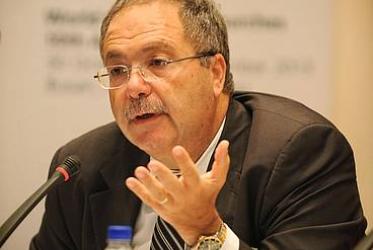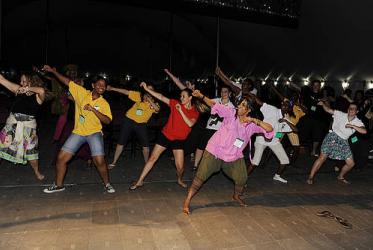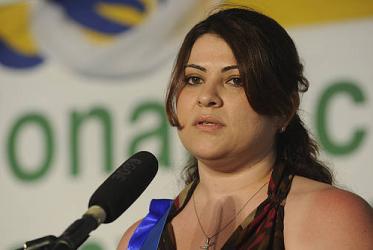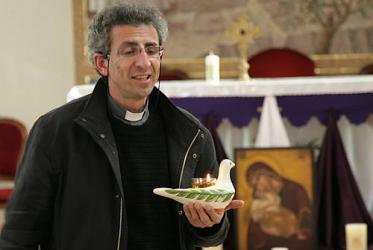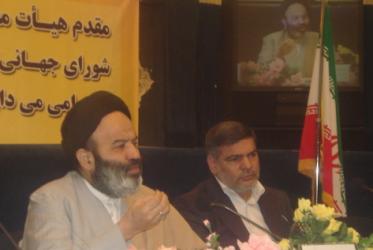Displaying 141 - 160 of 190
06 December 2012
Christians and Muslims engage in dialogue at a WCC meeting
21 September 2012
WCC congratulates Tarek Mitri on his new assignment in Libya
14 September 2012
WCC adopts statements on contemporary public issues
12 September 2012
Women in inter-religious dialogue in Indonesia
31 July 2012
Orthodox leaders assess Christian presence in the Middle East
07 September 2011
When pastors prey: book breaks silence
20 May 2011
Palestinian agreement sign of hope Tveit says
10 May 2011
WCC Central Committee focuses on peace and justice
25 February 2011
Interfaith partners advocate for health at UN summit
17 September 2010
WCC calls to freeze and dismantle Israeli settlements
02 September 2009
Eye witness perspectives on Middle East peace
22 June 2009
Israeli occupation puts strain on Palestinian Christians
02 April 2009


